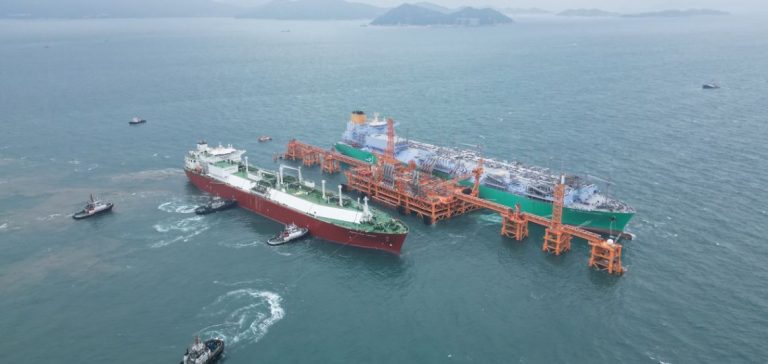The Colombian national company Ecopetrol and the Brazilian oil giant Petrobras announced Thursday the discovery of a considerable natural gas deposit in the Colombian Caribbean. This find, located off Santa Marta, promises to double the country’s gas reserves, marking a significant step for Colombia’s energy industry.
The gas field, initially discovered in 2022, holds estimated reserves of 6,000 billion cubic feet of gas. Ecopetrol described this discovery as the “most important well since the 1990s” on its X account, highlighting the strategic importance of this deposit for Colombia.
Rogerio Soares, general director of exploratory assets at Petrobras, stated at an event in Cartagena that this gas field represents a major opportunity to strengthen Colombia’s energy security. Its size is comparable to that of the Cuchupa field in Riohacha, which has been supplying gas to the country for 45 years.
This announcement comes shortly after President Gustavo Petro’s government unveiled a $40 billion financing plan dedicated to the energy transition. The goal is to reduce Colombia’s dependence on oil, gas, and coal by promoting renewable energies.
Economic and Political Impact
Elected in mid-2022, Gustavo Petro is the first leftist president in Colombia’s history. A critic of extractivism, he aims to redirect the activities of the public company Ecopetrol towards renewable energies. To this end, he has suspended new oil exploration contracts, causing tensions with the conservative opposition and energy sector unions.
The hydrocarbons sector currently represents 2.8% of Colombia’s gross domestic product (GDP), according to data from the national statistical authority, the Dane. Oil remains one of Colombia’s main export products, the fourth economy in Latin America.
Environmental Consequences and Energy Challenges
In recent months, Colombia has experienced an exceptionally hot season, exacerbated by a drought that has increased the risk of energy shortages and power outages. Experts warn that the country could face a gas deficit of 7.5% in 2025 and 16% in 2026, according to Naturgas, the national association of gas companies.
Furthermore, Colombia is in the midst of a water crisis, aggravated by the El Niño climate phenomenon. In response, the country has significantly increased its gas imports, with a rise of 2,500% between 2022 and 2023. Natural gas currently covers between 25% and 30% of the national energy demand, according to industry figures.
Future Perspectives
The discovery of this natural gas deposit comes at a crucial time when Colombia is seeking to balance its energy transition ambitions with the reality of its growing energy needs. While this discovery enhances the country’s energy reserves, it also raises questions about the future trajectory of Colombia’s energy policy and its commitment to renewable energies.
Decisions made in the coming years will be decisive for Colombia’s energy future, both economically and environmentally. Managing this new deposit and balancing the exploitation of fossil resources with the development of renewable energies will be at the heart of political and industrial debates.






















